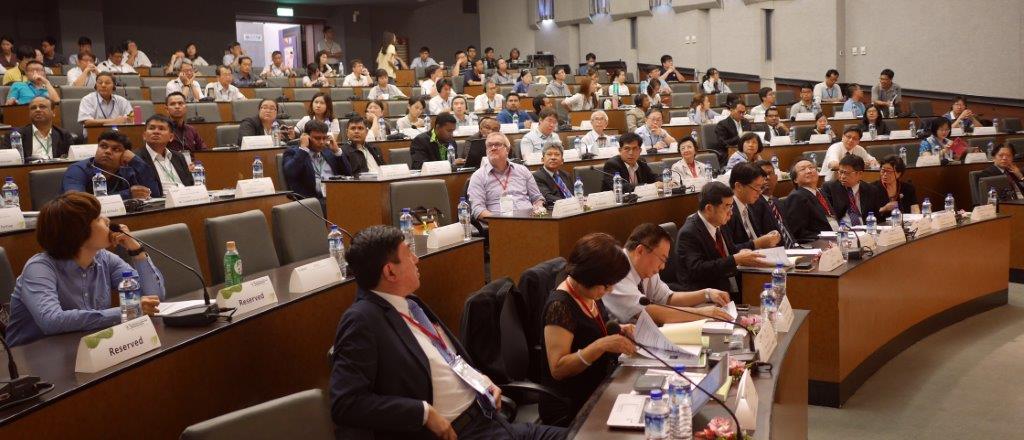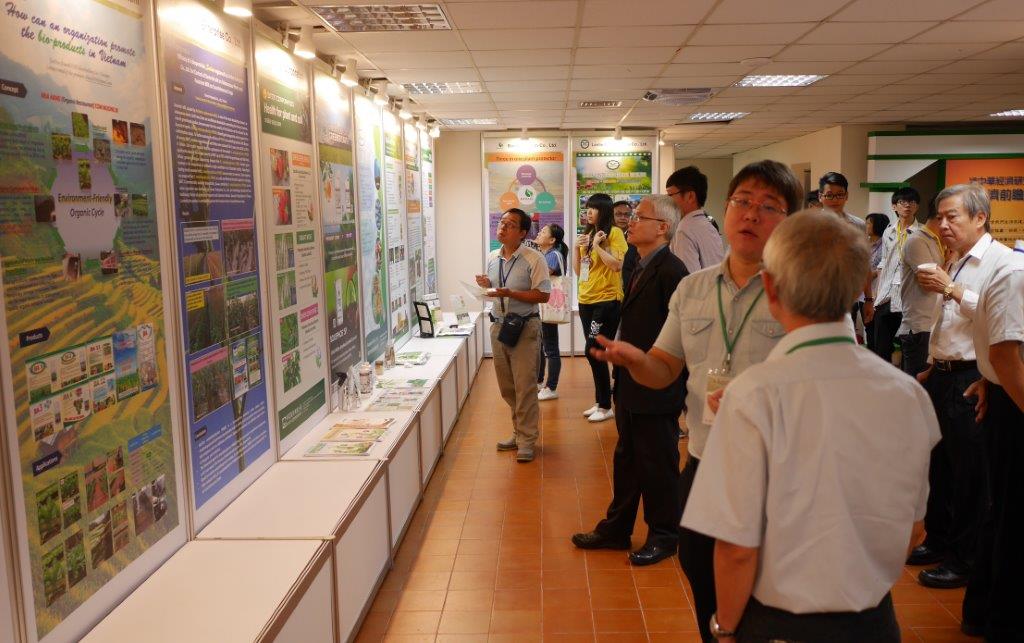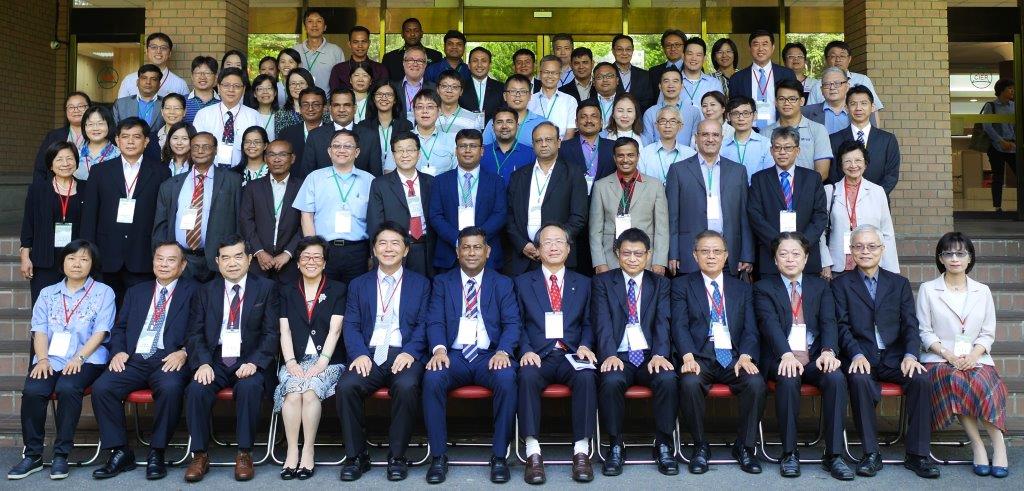
Select Page
The Asian Productivity Organization (APO) along with Council of Agriculture, Executive Yuan, of the Republic of China (ROC) and China Productivity Center (CPC) organized the 3rd International Conference on Biofertilizers and Biopesticides (B&B) focusing on novel industry techniques, market trends, and international cooperation in Taipei, 7–10 August 2018.
The conference was structured to provide a platform for leaders from the public and private sectors and NGOs as well as senior academics, entrepreneurs, and consultants to present and discuss the latest scientific knowledge, technological breakthroughs, and future prospects for the use of B&B to identify sustainable solutions and promote productivity in agriculture.
Forty-one participants from 14 APO member countries and over 200 observers attended. The conference was part of APO initiatives to promote international cooperation in improving sustainable productivity in agriculture in the Asia-Pacific region, particularly in the APO membership. It was conducted by six overseas resource persons from India, Malaysia, the Philippines, Switzerland, Thailand, and the USA, along with three experts from the ROC, who shared recent advances in the B&B industry and novel techniques and technologies for applications in the sector.

3rd International Conference on Biofertilizers and Biopesticides session in progress in Taipei, ROC, 7 August 2018.
The experts comprised: L.R. Research Laboratories Private Limited Director of R&D Dr. Bipul Behari Saha (India); MARDI Director General Dr. Mohamad Roff Bin Mohd. Noor (Malaysia); National Institute of Molecular Biology and Biotechnology University Researcher III/Program Leader Dr. Mannix Salvador Pedro of the University of the Philippines; Andermatt Biocontrol AG International Market Development Director Dr. Philip Kessler (Switzerland); Royal Project Foundation Director of the Plant Protection Center Dr. Nuchnart Jonglaekha (Thailand); and Certis President and CEO Dr. Jow-Lih Su (USA).
During the inaugural session, Dr. Chin-Cheng Huang, Deputy Minister, Council of Agriculture, Executive Yuan, highlighted the importance of B&B for promoting Green Productivity, human health, food safety, and environmental and natural resource management. He hoped that the conference would share novel techniques among the delegates and offer good recommendations for the development of appropriate policy and regulatory environments as well as the establishment of partnerships and networking among the key stakeholders in the B&B industry.

Colorful poster presentations offering information on B&B products used in APO member countries during the 3rd International Conference on Biofertilizers and Biopesticides in Taipei, 7 August 2018.
Other speakers at the opening session included Department of Science and Technology Director General Dr. Dennis Wang of the Council of Agriculture, CPC Director Eugene Y. Lin, Agriculture Technology Research Institute President Dr. Jen-Pin Chen, and APO Secretariat Program Officer Dr. Shaikh Tanveer Hossain. Participants shared country paper posters and information on B&B products during the conference.
The use of chemical fertilizers and pesticides is an integral part of today’s agriculture. Such chemical inputs have helped increase food, feed, and fuel production and provided nutrition for the ever-expanding global population by enhancing crop productivity and averting crop failures. Their use is on the rise in Asian agriculture. The overuse of chemical fertilizers and pesticides is, however, associated with challenges to sustainability in agriculture and hazards to human health and the environment.
The inappropriate use of agricultural chemical inputs decreases soil fertility, pollutes air and water, and releases greenhouses gases. Chemical residues in agricultural products have serious implications for food safety, human and animal health, and food trade. It is therefore crucial to promote the use of environment-friendly methods of improving plant nutrition and protection. B&B are important alternatives to meet the challenges of increasing agricultural yields sustainably.
The integrated use of biofertilizers and organic manure lowers the overall environmental costs of crop cultivation in the long term and contributes to cleaner, greener production by reducing the need for agrochemicals. Similarly, the judicious use of chemical and nonchemical pest management can help achieve safe, sustainable food production. Scaling up the use of B&B is, however, constrained due to a lack of awareness of their benefits and problems in production, storage, and marketing. The use of B&B is also limited due to the need for diverse application packages for different crops grown under varying agroclimatic conditions. Other issues are the absence of appropriate regulatory and policy incentives for domestic B&B marketing as well as for regional and global trade.
The third in the series of conferences, the APO initiative is aimed at addressing all these issues and promoting international cooperation in the widespread adoption of B&B technologies and successful models of marketing and international trade, including quality control measures for commercial products.

Photos: CPC